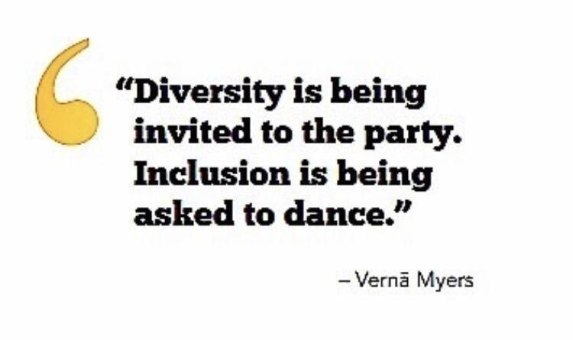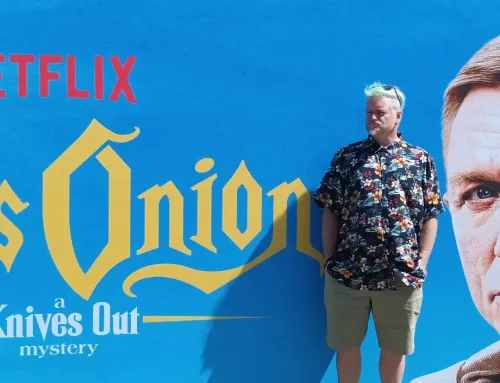White South African friends… i have so much love for you.
A number of you, when race conversations have been happening, have asked the question, “What can i do?” and as one who doesn’t have all the answers but certainly has some of the journey, i figured I can share some things that helped me to move further along in this conversation.
So for the next forty days, i am hoping to share an idea a day – some simple, some more challenging – to help you take some steps forward. Maybe there is a friend you can choose to pursue this journey with and so you can tag them in the comments or share this on your wall.
We have already covered the first five tips over here, and now it’s time to start looking at Tips 6 to 10…
= = = = = = = = = =
But What Can I Do? Tip # 6
Interrogate the spaces you inhabit and visit.
For example, there are some white people living in Bergvliet (and we can easily add another five to ten suburbs in there) where the only black, coloured or indian people they encounter will be people in service to them, so those who pack their groceries or tend their gardens or clean their houses or guard their cars.
If this is your only relationship to people who do not look like you then you will very likely gain a sense of superiority as your experience pretty much dictates that.
This is an extension of the coffee and dinner table tip #5 which helps you see people on a more equal footing.
But if the area you live in, the gym you attend, the sports club you are part of, the church you go to, the stores you shop at and the restaurants or coffee shops you visit are predominantly filled with white people, i encourage you to shake things up. (Also this might speak to the “I don’t have any black/coloured/indian friends thing you got going on)
When Val was still part of a gym she decided to move from Constantia Virgin Active to Keniworth Centre Virgin Active and instantly the look of the people changed.
When we came back from America and i was looking for a church to be part of, one of the top things on my list was diversity of race well represented in the congregation which is how i ended up at St. John’s Anglican church.
If you really are serious about these things it is worth a little more of a drive or simply being more intentional or when you are looking for a place to live really making an effort to explore different areas you may not have thought of.
White people make up less than 9% of the population of S.A. and so if you are only ever hanging with white people, that’s not an accident, it’s a secret society. Or may as well be.
Be more intentional about the spaces you visit and the people who occupy them.
Caron Falconer had this to add: I think some white people really need to grasp that we white people make up 9% of our society and then be critical of their school spaces etc etc. I recently used this in conversation when someone told me that they just wanted a” little bit of diversity”.
#ButWhatCanIDo
But What Can I Do? Tip #7
Volunteer.
There are some NGO’s and other groups doing some incredible work in formerly and currently disadvantaged areas [Spoiler Alert: the majority of these tend to be predominantly black and coloured areas in the Western Cape] – get involved.
Two organisations i have given some time to, who i think are doing some really important work, are BottomUp and The LifeMatters Foundation who both work in schools in the Cape Flats. Outliers is another one i know that is doing some important things in education all over.
They need funding and partnerships as most NGOs do, and i encourage you to dip into your wallet, but they also need bodies on the ground. If you have a skill you can run a workshop in the last week of school when not a lot of schooling happens; you can likely get involved in one of the many after-school homework programs that are facilitated by them; they often need leaders on camps to mostly just be present and love these young people while the work happens up front and in groups; there are public speaking groups and philosophy clubs and choirs and more where a committed person will be welcomed.
There are groups that work in prisons, and groups that are doing drama in townships [led by those in the townships] and people who spend time with those who live on the streets and more.
Our country does not have a lack of opportunities for people to volunteer. One of the benefits of walking alongside a learner or prisoner or township drama enthusiast is that hopefully you will start to develop empathy; hopefully there will be an increased possibility of seeing these young people as equals and not recipients of charity. It might even open up some corridors for the kinds of friendships and relationships i have been alluding to in these tips, where the real healing for South Africa lies.
So one very real thing you can do to start bridging gaps in South Africa, start seeing and stepping towards, is to invest your time and just show up on repeat.
But What Can I Do? Tip #8
Change up the voices you listen to.
Seth Naicker shared this:
‘To explore diversity, one must depart from the dominant narratives that monopolise our everyday social realities.
It is important to wonder about the possibilities that may arise when one departs from the knowledge platforms or knowledge propelled by dominant narratives, to embark on a journey of learning from knowledge that is not part of the dominant narrative.’
One way my life was transformed during my time in America was being challenged to read people who were not like me – before i left South Africa most of the books i read would typically [not by conscious choice] be written by middle-aged white American Christian men… and so the challenge was to start reading women [discovered Chimamanda Ngozi Adichie, Sisonke Msimang, Austin Channing Brown, Nadia Bolz-Weber…], people of other races [Steve Biko, Stephen Lungu, Michelle Alexander] and even people of other faiths/backgrounds [Elias Chacour, Naim Ateek] and i was exposed to many different ideas, stories and even ways of thinking by exploring this – i cannot recommend it enough.
If we only ever read people who look and think like us we will just be backing up the narratives we already have and confirming what we think we already know. You can read someone who thinks differently from you and not have to agree with everything or even anything they say. But there is so much space for learning.
Seth Naicker extends this narrative:
‘Start eating from a different menu, reading from a different story. A story of those who are not in power. Example: find a mentor outside your class, race and knowledge base. If you are a DA supporting white male find a mentor or at least friend to learn from, from the other side of the railway tracks e.g. EFF supporting black male.’
Where you choose to get your news, who you choose to follow on social media, what podcasts you listen to, even what series and movies you watch [Give ‘Dear White People’ a chance on Netflix – a LOT of sex vibes but some super helpful learning and perspective vibes] and where you choose to shop or eat.
When i recently went to Durban i was picked up at the airport by a muslim ANC counsellor, Ashraff Kader, who i had never met before [yay social media!] and we got to see a little bit into each others lives on the drive to the park…
There is so much wealth on offer, but it starts with an intentionality of choices made.
#ButWhatCanIDo
But What Can I Do? Tip #9
For those of you who employ someone of a different race to clean your house, look after your children or work in your garden, this is so super important.
Honestly engage with the question: ‘Am I paying minimum wage or a living wage?’
To sum this entire tip up in a phrase, it would be ‘Treat those who work for you as human.’ We already covered how calling someone ‘boy’ or ‘girl’ when they are an adult is deeply offensive, so now we will look a little bit closer at the money.
‘A living wage is the minimum income necessary for a worker to meet their basic needs. This is not the same as subsistence which refers to a biological minimum. The goal of a living wage is to allow a worker to afford a basic but decent standard of living.’[Wikipedia]
Each person is different and each context is different. For example, do you know what transport [or transports] your employee takes to get to work? One of the best ways of figuring out a living wage is to have an open and honest conversation with the person who works for you.
If you can’t afford to pay someone what is just for the hours they work for you, one possible solution is having them work less hours for you and paying justly for their time, giving them an opportunity to work somewhere else to bring in the money they need. Another option to consider is cutting out a luxury from your life [that R30 coffee a day which adds up, one restaurant meal a month, a holiday] so that someone else can have a necessity.
“Yes, but at least I’m giving someone a job” is an awful statement if you are not paying someone what they need to live.
Another vital solution in the quest for doing things better to build this country is to interrogate your mindset when it comes to those who work for you. Do I view the person who works in my garden on the same level as I view the person who works at the desk next to me? Do I really see them as human or have I given in to the myth of ‘less than’ in some way, shape or form.
You do not need to be best friends with your domestic worker [‘maid’ is a problematic word for many as it comes from the word ‘maidservant’ which is a breath away from ‘slave’] but you can be friendly with them and you can even be friends with them – they deserve to be treated with dignity and it is not a crime to remember their birthday, pay them on public holidays while giving them the day off, sit and eat a meal with them…
My friend Nigel Branken wrote an article about this a number of years ago which helped join the dots for so many people:
Here is an easy and helpful tool to help you see how you are doing with this: http://living-wage.co.za/
Also, give this article a read – it puts human faces on something that can so easily become just an issue: ‘When Nosiphiwo reflects on her own past salary as a domestic worker, she speaks about how over 43% of her daily payment went to transport and how she could travel for up to three hours to get to work on time.’ [http://living-wage.news24.com]
The first next step is to have an honest conversation with those who work for you [being aware that there is a strong power dynamic at play with you being their boss and so honesty may not win out over politeness at times, but as relationship builds it will hopefully come].
#ButWhatCanIDo
But What Can I Do? Tip #10
Commit to interrupting racism and prejudice.
Now that we are ten tips into this thing you are hopefully starting to develop some tools and have some actions that are helping make you into a better person. But you still live in a country which in many ways is still biased against people who are black, coloured and indian, especially if they are in a lower income bracket.
[In fact, Spoiler Alert, i believe a whole lot of South Africa’s problems are socio-economic rather than race-related, BUT because of how wealth is distributed in this country it still most of the time ends up looking and being racial as well]
An important step i believe every white person needs to commit to is adopting a #NotOnOurWatch mentality which says “I will interrupt racism and injustice when I come across it both online and offline.”
You might not be calling the gardener “boy” but what if your mom is? That is not okay and you can do it gently but firmly but when your mom says something about “the boy working in the garden” that’s an opportunity to interrupt and let her know that is not okay.
You see a family being treated differently in a restaurant or the person ahead of you in the shopping line starts abusing the cashier verbally because they are impatient or someone sharing ‘a joke’ online that is making fun of a different race at their expense. At the bare minimum, i believe our response is to let them know “That is not okay!” But these moments also provide opportunities to educate and help people to see why something is not okay and how they need to change how they speak, think and act.
This tip is very easy in principle, but generally I have found that people for some reason don’t seem to like having their racism interrupted and very much don’t like it being assumed that they are racist in any way. So this will probably have some kind of cost attached – you might feel uncomfortable or be called something or even be unfriended or blocked on social media or lose friends in real life, but do it anyway.
Can you commit to a daily stance of #NotOnOurWatch?
This is crucial.
#ButWhatCanIDo
[To move on to Tip #11, click here]
[To catch up with the first five tips i shared, go and check them out over here.]










[…] To continue on to the next five tips, helping answer the question, “But what can I do?”,… […]
[…] happening around these tips. If you have not yet read the first five which started this series or the next five then click on those first and bring yourself up to speed. But this post is going to be bringing […]